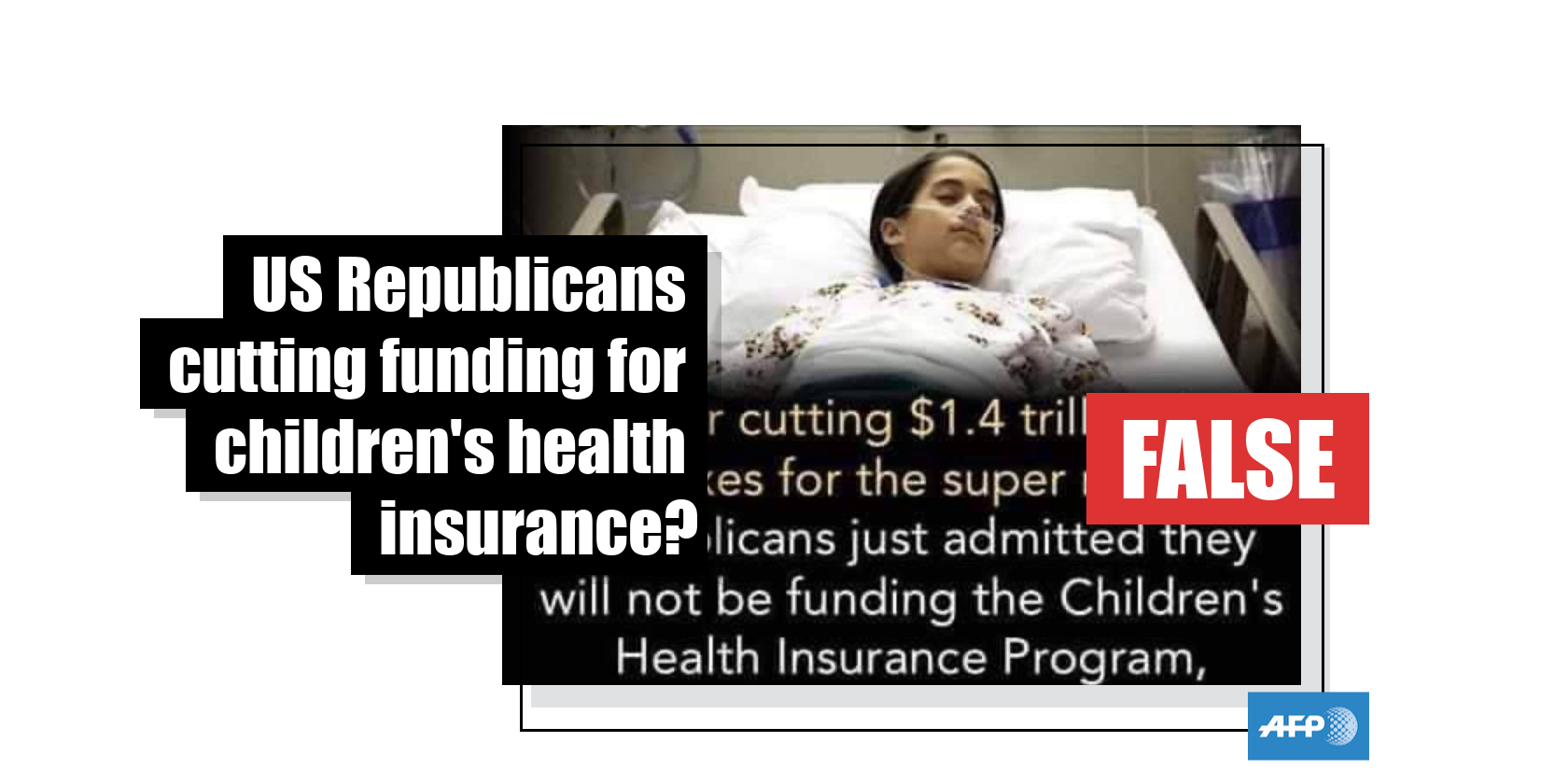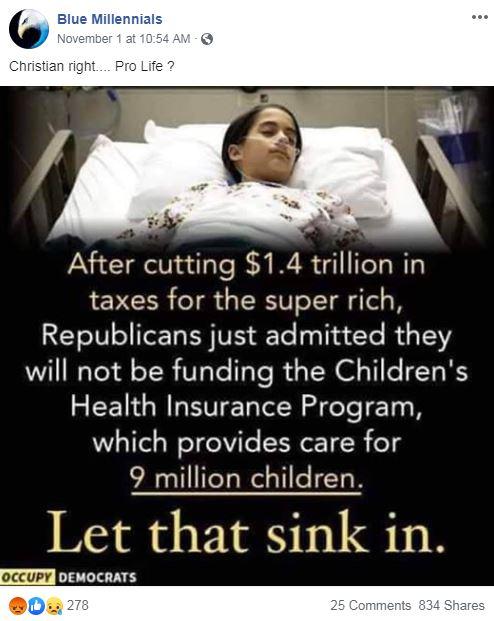
US Children’s Health Insurance Program is funded through to 2027
- This article is more than six years old.
- Published on November 13, 2019 at 06:29
- 2 min read
- By Marisha GOLDHAMER
The November 1, 2019, post from a Facebook page called Blue Millennials says: “After cutting $1.4 trillion in taxes for the super rich, Republicans just admitted they will not be funding the Children’s Health Insurance Program, which provides care for 9 million children.”
Below is a screenshot of the misleading post:

The post originated from a Facebook page called Occupy Democrats, which states on its profile that its mission is to “defeat President Trump’s supermajority in 2018 and send him packing in 2020.”
The Occupy Democrats page shared the meme on December 20, 2017. When the meme was originally posted, federal funding for CHIP had expired on September 30, 2017 -- the first time since the program’s 1997 creation.
However, the post making the claim in 2019 is false; bills passed in the months following the lapse of the federal funding for CHIP secured funding for the program through to September 30, 2027.
What we know about CHIP
CHIP, created in 1997, covers services including routine checkups and immunizations for eligible children in the US.
The program is funded jointly by the federal government and state governments.
On September 30, 2017, federal funding for CHIP expired for the first time since the program's launch in 1997.
On January 22, 2018, Congress approved a temporary funding bill that ended a three-day government shutdown. Part of that continuing resolution extended funding for CHIP.
On February 9, 2018, Congress passed the Bipartisan Budget Act of 2018, further extending funding for CHIP. Through the Helping Ensure Access for Little Ones, Toddlers, and Hopeful Youth by Keeping Insurance Delivery Stable (HEALTHY KIDS) Act and the Advancing Chronic Care, Extenders, and Social Services (ACCESS) Act, CHIP is currently funded through to September 30, 2027.
Those bills changed certain requirements for CHIP put into place under the Affordable Care Act (ACA).
The ACA had provided states with extra funding to help pay for CHIP. This federal matching rate decreased on October 1, 2019. States are now responsible for about a third of the cost of the program, with the federal government paying the remainder, according to University of Southern California (USC) health policy researcher Dr. Gregory Stevens.
The ACA also included a "maintenance of effort" provision, according to the American Academy of Pediatrics. That provision required states to maintain their existing income eligibility and enrollment standards for CHIP.
However, starting in October 2019, states are only required to offer CHIP coverage to children living at or below 300 percent of the federal poverty line. In 2019, this is an annual income of $75,250 for a family of four in all states and the District of Columbia, except Hawaii or Alaska.
Thirteen states, including Alabama, New York and Pennsylvania, which had more generous eligibilty standards for CHIP, are now allowed to tighten the pool of eligible children to only those living at or below 300 percent of the federal poverty line if they choose to do so.
This could result in a reduction in the number of children covered but Dr. Stevens told AFP by email, “That’s going to be a relatively small number of children, in part because of the populations of the states that are included in that 13, but also because children above 300 percent were a small portion of CHIP to begin with.”
This search of bills proposed in the 116th Congress (2019-2020) does not show any legislation attempting to end funding for CHIP.
Copyright © AFP 2017-2026. Any commercial use of this content requires a subscription. Click here to find out more.
Is there content that you would like AFP to fact-check? Get in touch.
Contact us
